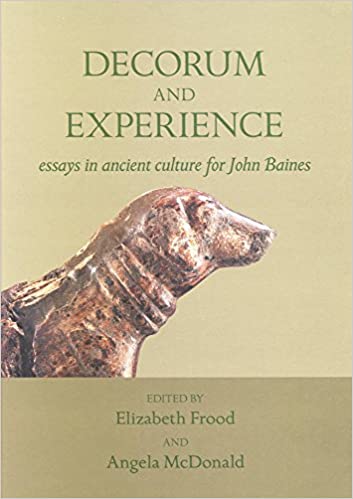First paragraph
Myth is a fundamental feature of Egyptian cultural expression. Its characters and episodes pervade both the written and the artistic record of essentially all periods for which these media are attested. John has been instrumental in furthering the Egyptological debate on myth by highlighting the importance of concepts such as orality, restricted knowledge, and the preference for some forms of knowledge codification over others (Baines 1991; 1996; 2007a: 140–42). In this, as in many other areas of the subject, he is moreover one of only few Egyptologists to venture into more theory-based disciplines such as anthropology, and to apply their models to the Egyptian evidence (e.g. Baines 2007b). It is a great pleasure, therefore, to be able to outline some thoughts on the foundational role of myth as a category of cultural discourse in a volume that recognizes John’s long and distinguished career. I suggest, in relating the Egyptian evidence to recent findings in the Cognitive Sciences, that myth not only plays an important role as the aforementioned central feature of cultural expression, but equally as something that might be called a ‘cognitive tool’, one that transcends cultural and historical boundaries.
Publication Type
- Article



